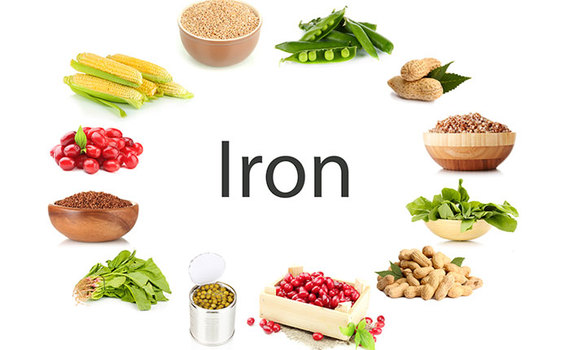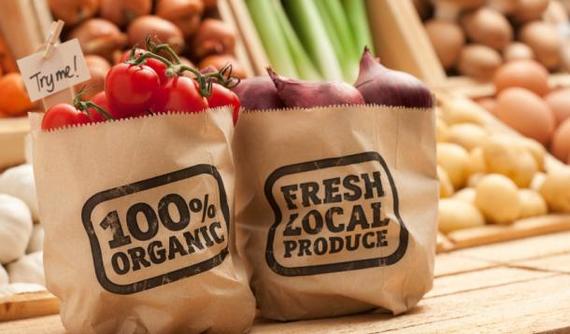How do you spend 22 years of your life eating and craving meat, and then one day you stop doing just that. What has to happen in your life for such a dramatic change of events? Is it because you just want a change in your life? You could be doing it purely for health reasons, or perhaps you've become so fond of animals that you are no longer interested in participating in the collective manslaughter of cows, chickens, pigs and other animals we see on our dinner dishes almost every single night.
I found that in my case, it was a little bit of all of the above. I do think that my meditation practice had made me more compassionate over time (I had been meditated for 2 years at the time), and I know that it had a HUGE impact on the final decision to switch to a vegetarian diet. It has been a whole year since I began my journey and there have been a few things that I have learned about myself, about my body, and about the food I consume.
I'm going to list a few of my lessons that I learned since going vegetarian that I found to have the most value for me personally. If you want, you can check out my recent column about "going vegetarian in 6 minutes" -- where I listed a truly devastating video, one that shows just how badly all of the animals we find on our store shelves are treated, and how difficult life is for them.
1. Nutrition is essential to your well-being
I had to learn this the hard way, the truly hard way. I was so hooked on my vegetarian diet for the first few months that I totally ignored important nutritional factors for my body that soon started showing signs in the form of fatigue, tiredness and general loss of color for life.
My diet was lacking in Iron, all the resources I had stored up before I went green had dried out, and the effects became quite apparent, with a certain difficulty to figure out what exactly was going on. Life works in mysterious ways, and soon a number of occurrences in my life signaled that it might indeed be an Iron deficiency I was experience. That was my ticket back to feeling good, about myself and my diet.
The lesson here was to pay close attention to the foods I consume, and to play even closer attention to the amount and type of nutrition that each food contains. Luckily, once you do start to learn more about these things -- you find that there is plenty of variety available to keep you healthy, nourished and with tummy full of healthy food.
2. Supplement where necessary
I do think that it's quite important to be fully aware of your diet and the amount of nutrition you're taking in not only with every meal, but as every day goes by. Vegetarians struggle with vitamins such as B12, Iron and oftentimes Calcium. All of which can be supplemented.
Living in certain parts of the World might restrict you from having access to foods that are rich in these nutrients, and so the chance of experiencing some sort of a deficiency grows significantly. Spend some time observing your diet and see what could be supplemented if really necessary.
3. Water is amazing
I know for a fact that changing my diet to a vegetarian one had a huge impact on the volume of water I consume on daily basis. It has become somewhat of a food source by itself. Before settling for a vegetarian diet, I clearly remember that water was not my primary source of nourishment for thirst on a hot day; juice was usually my number one option.
These days, I find myself consuming a minimum of 2 liters of water every single day. 3 to 4 liters whenever possible. It keeps me energized and feeling alive, and oftentimes I will do a morning run with nothing but water in my belly, and I can still do 4 miles without breaking too much sweat.
Two big glasses of water in the morning has become a ritual, it wakes up my body and it gives me the right kind of energy to start my day without feeling like I have to drag time until breakfast rolls around.
Drink water. Drink plenty of water. We are water.
4. Organic vs Non-Organic
I think there can be a huge debate about this topic, and certainly it became apparent to myself once my diet started to change and improve. Should you eat only Organic and is "Non-Organic" food really that bad? The idea is that Organic food is grown organically, while "Non-Organic" is grown for mass production and may be grown in an environment that's altered with chemicals for faster growth, or higher yield production. That's how I tend to look at it.
The one issue with Organic food tends to be the price, it almost always is going to more expensive than your average prices in a supermarket -- which I firmly believe is one of the reasons why so many people say no to this type of a diet. That's the price you have to pay for food that's grown organically.
I will choose Organic where possible, but I will never cross out other foods just because they're cheaper or have been grown differently. If I don't have access to a farm, or don't live close to an organic plantation -- I'm not going to make it difficult for myself to decide what kind of a meal I want based on whether the vegetables are grown locally or not.
The lesson here is to read the labels of the food you purchase, make sure that it's been grown from natural sources and is not of GMO nature.
5. Food variety is endless
Let's keep it positive for the last bit. A vegetarian diet offers an immense amount of food variety that we will often ignore because it's so much easier to slap some meat on the grill and forget all about other food choices. Do you know what Superfoods are? They're the kind of foods that we sometimes don't even realize exist.
It was a real eye opener for me to learn about foods such as Chlorella, Spirulina, Chia Seeds and many many others. They're tasty, they're rich in nutrition and it is so easy to prepare them either in a smoothie, or over some salad leaves.
Yet I know, there is still so much food for me to explore and understand, and I'm looking forward to the future of my journey as a vegetarian.
How did you become a vegetarian and what have you enjoyed the most about your newly found diet? Has it been everything you expected?

